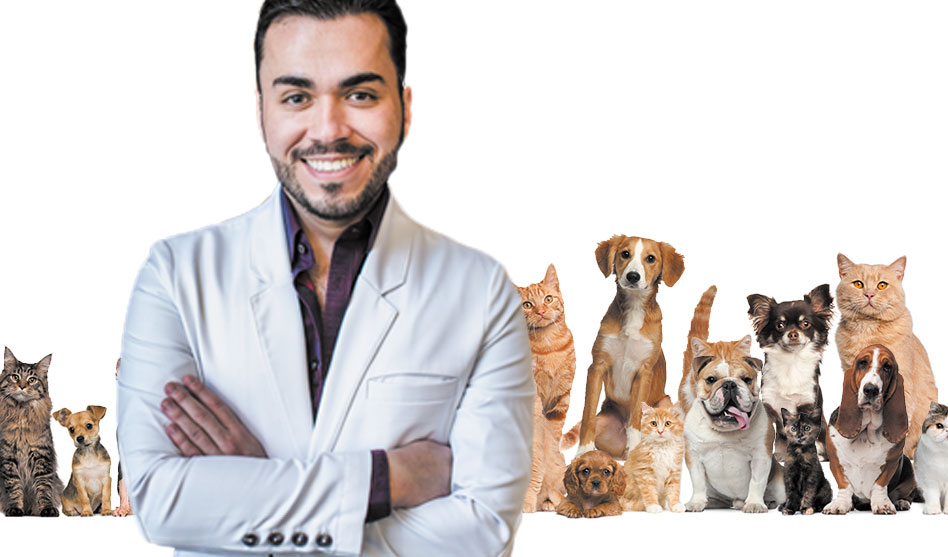 Hello Woof readers! Welcome back and great to have you reading my column again. There is so much that has happened with our nation since my last column in early November!
Hello Woof readers! Welcome back and great to have you reading my column again. There is so much that has happened with our nation since my last column in early November!
The topic for this month is geriatric care, and I will be introducing important thoughts to help us take care of our more mature dogs and cats in a way that hopefully allows us to have our babies healthier for a longer period of time. Some of the things I will present here have been discussed in my prior columns, so feel free to check in previous issues of Dallas Voice for more details. (Woof! publishes on the first Friday of each month.)
There are different ways to calculate how old our babies are in “human years.” As a rule of thumb, our dogs and cats are usually considered geriatric after the age of seven. However, with dogs, the larger breeds age faster and, sadly, live shorter lives. This means that, for example, a Great Dane usually has a shorter life than a Chihuahua. Nevertheless, I have seen bigger dogs that have lived long and amazing lives, so do not let this make you feel sad if you have a bigger boy or girl.
The most basic things that apply to our health as humans as we mature also apply to our furry kids. Regular exercise and weight management are very important throughout our lives, but even more so when we get into our later years. Most of our babies may not tolerate the same amount of exercise, but you can break down exercise into smaller, more frequent sessions. Also make sure that you are feeding them a healthy diet meant for geriatric dogs or cats.
One important reason to keep our dogs and cats at a healthy, slender weight is to avoid putting so much work on their joints. It is extremely common for dogs and cats to develop arthritis, and it will affect their lifestyles. Consider getting orthopedic beds for your babies and also area rugs or runners that will help them keep traction around your home. Slippery surfaces are horrible for our babies when they have arthritis, especially when their muscles are not as strong as they used to be.
You may also consider starting them on high quality joint supplements. Keep in mind that there are PLENTY of joint supplement brands, but only a handful are actually worth it. Lastly, there are medications that can truly help dogs and cats with joint issues that are in desperate need of comfort. Please consult with your veterinarian in order to determine the ideal approach for your baby.
Arthritis is not the only condition that we see with our geriatric kids. We can also see dental disease, liver disease, kidney disease, skin issues, thyroid disease, and — as much as we hate saying it — different types of cancer as well. It is vital for us to closely monitor our babies for any changes in their behavior, appetite, water intake, urination, defecation and breathing, among others.
It is also important to thoroughly check our babies at least once or twice monthly for the presence of any obvious lumps throughout their bodies. There are masses and certain types of cancers that may not be visible, but a physical exam and a consultation with your veterinarian, along with a detailed history of what you may be seeing at home, will help in identifying what may be happening to your loved one.
As a doctor, I recommend a full physical examination for your baby with the veterinarian at least every six months, along with lab work that includes analysis of blood, fecal and urine samples. Sometimes it is also recommended to consider chest (and even belly) radiographs, as these can give us quite a few details about the overall health of your baby.
Needless to say, it is vital for us as medical professionals to be aware that cookie cutter medicine does not apply to everyone! That is why it is vital to have a good conversation with pet parents and establish goals and expectations, based on a conversation about what is best for our babies and what is feasible for us as parents.
I hope this column has not made you sad, because I know none of us want to see our babies grow old. My goal here is to give you the tools to give your babies the best life they can have at such a crucial stage of their lives. As always, thank you for reading my column and I am sending you a virtual abrazo!
Dr. Josh owns Isla Veterinary Boutique Hospital at 14380 Marsh Ln. Ste. 110 Addison, next to Tom Thumb. Call them at 972-738-1111 or visit online at IslaVet.com.


